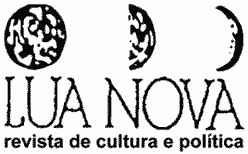Resumo em Português:
Este artigo analisa os documentos sobre "visão de país" apresentados na Assembleia Constituinte boliviana em 2007. Foi possível constatar que, se a direita porta um ideal de ordem política liberal e estatista, que prescinde de enraizamento na história e na sociedade boliviana, com uma visão de nação passiva e subordinada à legalidade estatal, a esquerda pauta coletividades políticas ativas, através ou apesar do Estado. Apesar da ideologia "descolonizadora" comum, o bloco da esquerda, majoritário e representante da situação, é marcado por profundas tensões internas. As posições com relação à nação e ao Estado indicam expectativas contraditórias: se alguns buscam a consolidação da primeira e a domesticação do segundo, para outros, essas esferas representam entidades paralelas, com as quais se pactuam políticas. Por fim, o estudo sugere que conceitos consensuais na esquerda, como a plurinacionalidade, seriam acordos possíveis, porém prenhes de disputas, e que a Constituinte seria mais bem entendida como um encontro de antagonismos, em que os grupos opostos constroem seus projetos um na contramedida do outro.
Resumo em Inglês:
This article analyses the documents on "vision of country", exposed by political groups that participated in the Bolivian constituent assembly in 2007. On one hand, right-wing groups hold a liberal and statist political order ideal, which does not need to identify its roots in Bolivian history and society, with a vision of nation that is passive and subject to state legality. On the other, left-wing groups defend active political collectivities, which act through or despite the state. In spite of the solid "decolonizing" ideology, the left-wing block, majoritarian and representative of the government, is marked by internal tensions. The positions regarding the nation and the state indicate contradictory expectations: if some seek to consolidate the former and to domesticate the latter, for others these spheres represent parallel entities, with which policies are negotiated. The study concludes that consensual concepts of the left, such as plurinationality, represent possible agreements, but are loaded with future disputes, and that the constituent assembly would be better understood as an encounter of antagonisms, in which opposing groups build their projects in the countermeasure of the other.
